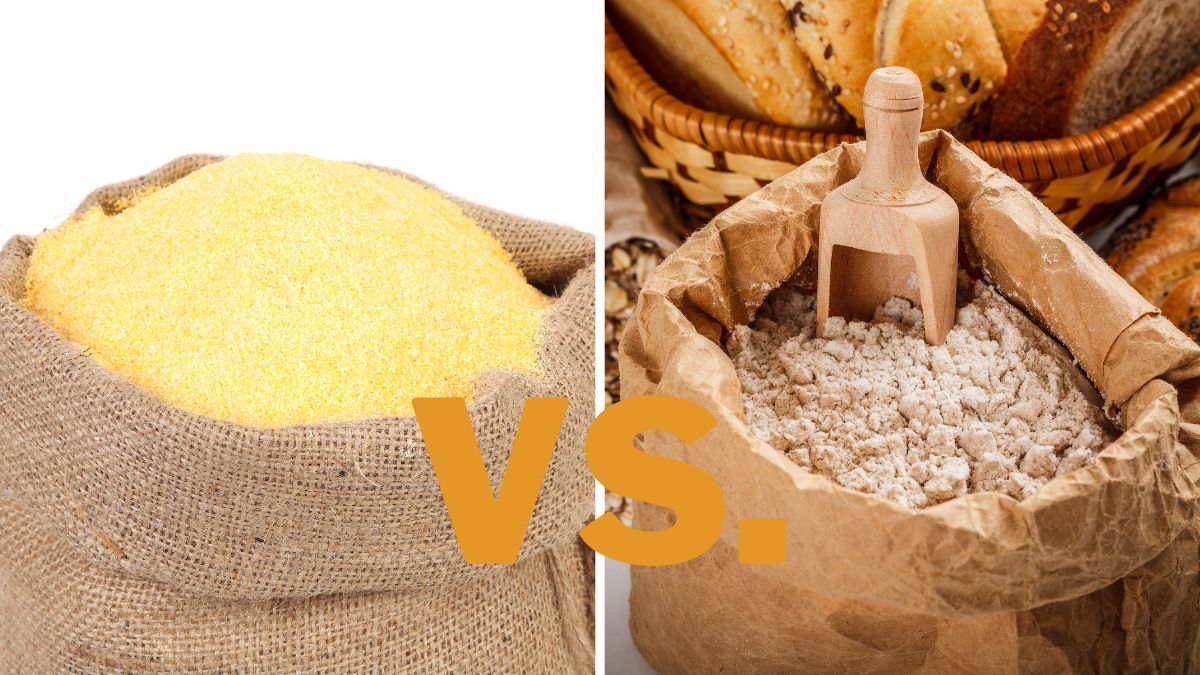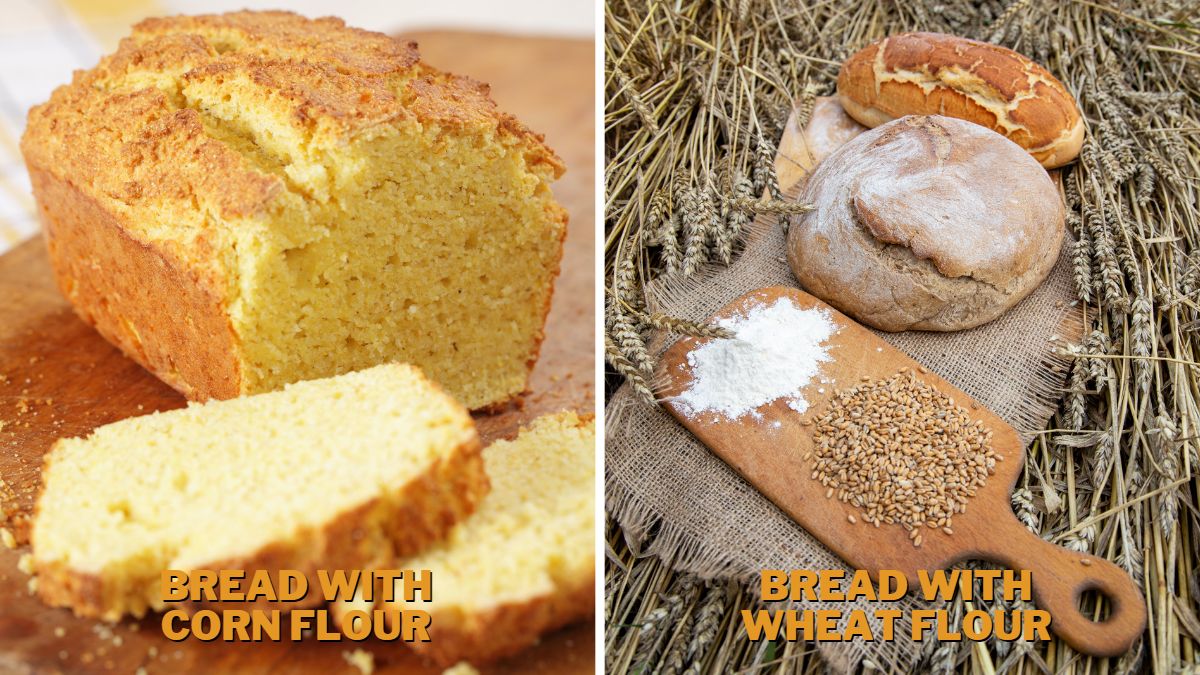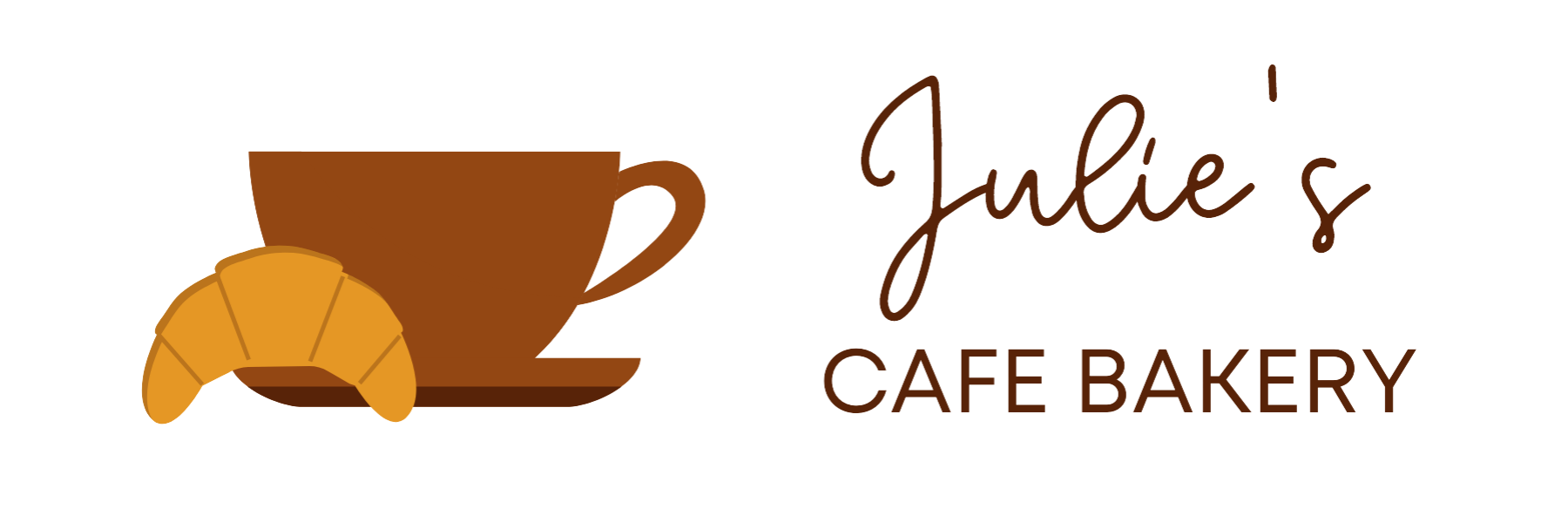Corn Flour vs. Wheat Flour: Differences

Did you know that there are more than 20 different types of flour? There are so many different kinds of flour that, at some point, we don’t even know which one to use anymore. Which one should be used for cookies? Cake flour, pastry flour, or just whole-wheat flour? Is maize flour the best to thicken my sauce? Are all types of flour healthy? What is the use of potato flour? And what are the differences between corn flour and wheat flour?
The difference between corn and wheat flour is related to the nutrients in each flour. While corn flour is rich in fats and contains sugar, wheat flour is rich in protein, fiber, and minerals. Wheat flour is great for making bread, while corn flour doesn’t have gluten, so it’s not easy to work with.
This doesn’t mean that corn flour is bad, only that it is less nutritious than wheat flour. Still, both types of flour have their pros and cons. The corn one, a gluten-free flour, is a very good alternative for gluten-intolerant people. Thinking that you all might have the same questions as I did before, I’ve prepared a small Q&A which is going to help you better understand the differences between the two types of flours and which one to use in different situations.
Corn Flour vs. Wheat Flour: Differences?
Firstly, corn flour is yellow, and wheat flour is mostly white. You can also find brownish wheat flour which is called whole wheat flour. More than just differences at the nutritious level, these two types of flours are different regarding taste and use scenarios. Let me break these down for you.
Nutrition
When talking about nutrition, wheat flour is much more interesting than corn flour. In addition to 2,5 times more grams of protein and fiber, wheat flour contains calcium, which corn flour doesn’t, and is richer in magnesium, phosphorus, and potassium. [1] Corn flour has 1,04 sugars per 100 grams and is higher in carbs when compared to wheat flour. [2]
Taste
Corn and wheat flour are very different when it comes to taste. Corn flour tastes like corn, as it is made from the whole dried kernel, otherwise known as yellow corn. It is sweet and earthy, and you almost get the impression that you are eating real corn. On the other hand, wheat flour is nutty and malty and famous for giving everything that contains it that comforting feeling of a warm blanket on those first rainy days.
Uses
Wheat flour is a more mainstream type of flour, meaning that it can be used for everyday baking and cooking, regardless of what it is. Corn flour is different, though. Due to its gluten-free properties, one of its more common uses is for gluten-free baking. Bread, pancakes, and waffles also taste better when you use corn flour. You can also make homemade cornbread with corn flour.

Corn Flour vs. Wheat Flour: Which Is Better in Baking?
When it comes to these two, wheat flour is the best option for baking. Still, even though wheat flour is more commonly used in the baking realm, corn flour is also a good option for baking bread. Because corn flour doesn’t have gluten, it is not sticky as wheat flour, so the dough doesn’t always stay together.
Biscuits, pastries, pancakes, or waffles all taste better with the addition of corn flour. You can either use it as a substitute (check below to know more) or as a complement (I prefer this second one) for wheat flour. Ultimately, it will add a delicious corn taste to your baked goods.
Is Corn Flour Better than Wheat Flour for Weight Loss?
Wheat flour is the best option if you want to lose some weight. Rich in fibers and proteins, this flour won’t only affect your digestive health, but it will make you feel satiated and filled for longer. Corn flour, on the other hand, shouldn’t be part of your plans when trying to reduce your weight. It is full of calories and carbs (including refined sugar).
Nonetheless, if your objective is to lose weight, there are better options than corn or wheat flour. Coconut, peanut, or sesame flour are all better options if you are on a diet.
Corn Flour or Wheat Flour: Which Is Better for Thickening?
Of the two, wheat flour will be better for thickening the sauce. Corn flour is not used for that purpose, but you can opt for corn starch which will work even better than wheat flour. To be more precise, you will need a double dose of wheat flour to do the same job as corn starch.
Corn Flour vs. Wheat Flour: Which Is Better for Diabetics?
Wheat flour is the best option for Diabetics as it has a lower GI (Glycemic Index). [3] Very simply put, a GI is a value that measures how a specific food will increase your blood sugar levels. If you are a diabetic, you will look for food and ingredients with a low GI. What is a low GI? A low GI is anything below or equal to 55.
Corn flour has a GI of 70, which is considered already a high GI. Being high in carbohydrates makes it a terrible choice for a diabetic person. Wheat flour, on the other hand, has a GI of only 54, making it more appropriate for diabetics, as it helps to control blood sugar.
Can You Substitute Corn Flour for Wheat Flour?
Wheat flour is a great substitute for corn flour. In your baking and cooking recipes, you can use a 1:1 ratio. For example, if you are cooking tortillas and you want to replace corn flour with wheat flour, you can use 1 cup of wheat flour for 1 cup of corn flour.
Don’t forget: wheat flour has gluten, which corn flour doesn’t, so you can make the substitution but be aware that the final result won’t be gluten-free.
Can You Substitute Wheat Flour for Corn Flour?
More or less. You can substitute wheat flour for corn flour. However, the results are going to be undoubtedly different, especially when it comes to baking. I’m sure many people need to do this substitution for health reasons, and that is ok. You just need to be aware that, being a gluten-free flour, corn flour won’t have the same rise as wheat flour, a gluten-full flour.
So that you don’t end up with very thick cakes, the best tip I can give you is for you to use wheat flour for airy, whisked sponge cakes like a very light chiffon cake or roll.
